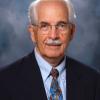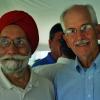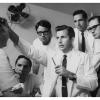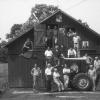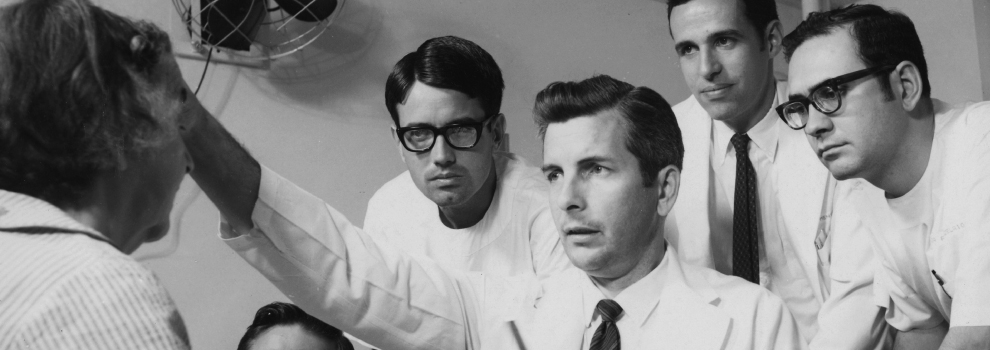
It is with great sadness that we learned of the recent passing of H. Stanley Thompson, MD. Dr. Thompson became a part of department in 1967 when, after his residency at Iowa, outgoing department head, Dr. Alson E. Braley, and incoming head, Dr. Frederick C. Blodi, hired him to direct the neuro-ophthalmology unit, which now bears his name. His interest in the workings of the pupil, under the mentorship  of Irene Loewenfeld PhD, began a new era of pupillary research in Iowa City and made Iowa known around the world as a place where unusual pupillary problems can be solved. “Our department benefited immensely from Dr. Thompson’s contributions to the field of neuro-ophthalmology—in particular making the pupil relevant,” said Keith Carter, MD, FACS, the current chair of the department. Explaining Dr. Thompson’s impact on the world of neuro-ophthalmology, Michael Wall, MD said, “he will forever be a pillar of neuro-ophthalmology for his major contributions on clinical pupillary disorders—especially his work on the relative afferent pupillary defect.”
of Irene Loewenfeld PhD, began a new era of pupillary research in Iowa City and made Iowa known around the world as a place where unusual pupillary problems can be solved. “Our department benefited immensely from Dr. Thompson’s contributions to the field of neuro-ophthalmology—in particular making the pupil relevant,” said Keith Carter, MD, FACS, the current chair of the department. Explaining Dr. Thompson’s impact on the world of neuro-ophthalmology, Michael Wall, MD said, “he will forever be a pillar of neuro-ophthalmology for his major contributions on clinical pupillary disorders—especially his work on the relative afferent pupillary defect.”
Throughout his three decades at Iowa, he taught and mentored countless residents, fellows, and faculty—including current faculty members, Dr. Wall and Randy Kardon, MD, PhD. “He was one of the main reasons that I decided on neuro-ophthalmology—and he trained so many of us as fellows, residents, and medical students over the years with great kindness, humor and passion,” Dr. Kardon said. Despite being a pioneer and major contributor to the field of neuro-ophthalmology, Dr. Thompson never took himself too seriously. “He was an outstanding teacher and punctuated his lessons with subtle self-effacing humor,” Dr. Wall explained. “One of my favorite sayings was, after discussing a case for about 20 minutes and going in circles, he would say: ‘There is something to be learned from this, I am just not sure what.’” When presented with impromptu teaching moments, Dr. Thompson was also known to sketch out his ideas on paper napkins in lieu of a chalkboard.
But Dr. Thompson’s legacy goes beyond his professional impact: “He was a terrific mentor and teacher but most importantly he was a true gentleman,” Dr. Carter said. Dr. Kardon recalled the personal connection that Dr. Thompson formed with those in the department: “There were so many great memories over the years—especially the Thompson ‘corn parties’ at their farm each fall with potluck dinners, volleyball, softball, bicycle obstacle courses, and bringing in the corn from the field for dinner.” Lee Alward, MD added, “His corn parties were an integral part of our culture, and his dry wit rescued many an endless faculty meeting.” Dr. Wall also remembers how special Dr. Thompson was and the lasting impact he will have on the department on top of his academic contributions: “most of all he was a gentle, caring human being and a role model for all of us.”
We will greatly miss Dr. Thompson but his legacy at Iowa will continue. One way you can help carry on this legacy is to visit the link below, which will take you to a neuro-ophthalmology fund in Dr. Thompson’s honor. This fund supports the neuro-ophthalmology unit and neuro-ophthalmology research at Iowa.
You can read Dr. Thompson’s full obituary here.
